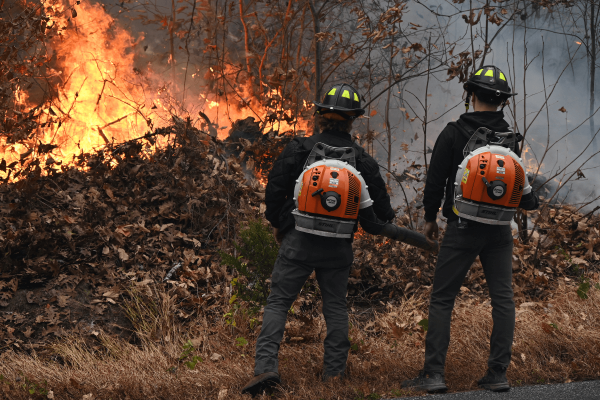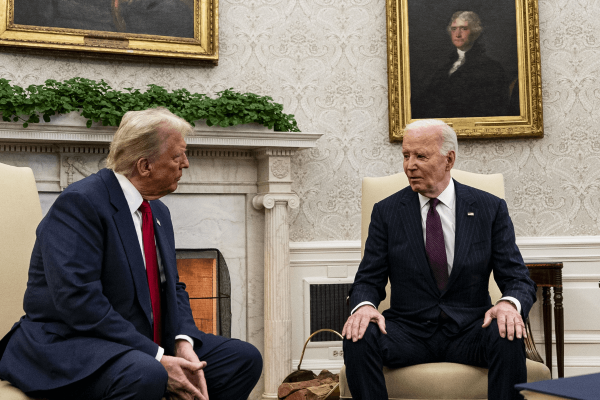The Rev. Dr. Amy Butler is one of the most prominent pastors in modern America. She recently served as Senior Minister for the historic Riverside Church in New York City — the first woman to ever hold that position. She left the post this year under contentious circumstances: Some in the church say she acted inappropriately with colleagues and subordinates. Hannah Natanson of the Washington Post reported that Butler experienced sexual harassment and gender-based discrimination.
Butler has dedicated much of her time and attention over the course of her career to smashing the patriarchy within the church — what many describe as shattering the glass ceiling.
I had the privilege of sitting with Amy and learning more about how she came to her unique position of prominence — and why she remains so committed to creating gender equity in the Church.
You can listen to the full interview on my new podcast, Spirited, which focuses on how prominent leaders and thinkers lean into their faith to guide their actions. Listen on any of the major podcast platforms, including Apple Podcasts, Spotify, and Sticher. The interview has been edited for length and clarity.
Simran Jeet Singh: Tell us a bit about who you are. What’s at your core? What is it that drives you?
Rev. Dr. Amy Butler: I grew up in Hawaii. My father is a native Hawaiian activist and community organizer. And I like to say that growing up in an island culture is a unique experience because when you live on an island, you have to care about the welfare of the other people around you in order for yourself to survive. So that was sort of the underpinning of my entire formation.
My mother is from New York, so she's not Hawaiian. And my parents are evangelical Christians — very conservative, evangelical Christian. So it was this wide encompassing island culture, and then the black and white rules of evangelical culture and what women are supposed to do. I never saw a woman in leadership in religious institution. I knew that women could only have influence in religious institutions by marrying the pastor.
I went away to a Christian college. When I got there, I started studying theology and started rethinking some of the things that I had learned growing up, particularly shame and punishment rules and the idea of a vengeful God and this whole idea of love and inclusion and this concept of God as something that brings us together. That all-encompassing idea was so much more attractive to me. It also made me thank that if you include everybody, then you could include women too — and then women could be pastors too.
Singh: So tell us a little bit about your journey to becoming a pastor. Was it a straight and smooth path? Or more arduous and circuitous?
Butler: Well, I wanted to pastor a church to sort of have the experience of like what it would be like to build a community of people who really believed that the world could change for the good. But nobody would hire me 'cause I'm a woman. So I ran a homeless shelter for women in the city of New Orleans, and that was amazing.
I think this is the case for a lot of women. We have to take, like, whatever we can get and start out and then we have to make it into something amazing because the men either don't want it or couldn't do it. And that was the case for me.
The shelter was a big inner-city gospel rescue mission, like the kind you see on the news on Thanksgiving Day when all the celebrities go and serve food. They served like 200 to 250 men every night. And then in the back they had a house that had room for six women. These are women who were working on the street corners every night where this is during a really bad crack epidemic. So there were crack houses all over the neighborhood — and here's me and my little evangelical self. I learned a lot about prostitution and drug addiction and about systems that are so racist and misogynist and keep women down.
I learned so much about being a pastor, about building community, about spiritual practice, and about the tenacity that it takes to be a woman in a system that will forever try to push you down.
Singh: How did you then leverage this experience to get a position as a pastor? And what was that experience like?
Butler: In Baptist life, you send your resume out into the world and you hope that someone sees it. You never know where it's going to land. I got rejection letters from congregations I didn't even know had my resume. Looking back, I wish I had saved all the rejection letters!
It took about two years until Calvary and I met each other. They were in huge decline, historic congregation in the middle of downtown D.C. And they had offered the job to two older white men who wouldn't touch it with a 10-foot pole.
Despite that, they really took a chance on me: I was 32 years old with three young children. And I took a chance on them because they told me they believed like in this idea of gospel, like, loving God and loving our neighbor and that they really wanted to do that and be that in this historic gentrifying congregation.
Singh: Tell us what it’s like to be a female pastor in spaces like these. What does it look like and how do things play out?
Butler: Well, I imagine it's like being a female leader in any other space. You show up in a space and you are not afforded the traditional respect that you would be given if you were a white man.
You do everything the men do except do it better. You have to be constantly fighting against these standards of how our society sexualizes women and does not see them as authority figures or people deserving. I would describe it as having two jobs. Like you have to do the actual job and then you have to do the additional job of convincing everybody that you're good enough to do your job.
That takes expression in a lot of different ways. At Riverside I would often get kicked out of the nave, the main sanctuary space, if I went in there to prepare on a Saturday, for example. If there was a new security guard who didn't know who I was, they would assume me to be lost and say: “Excuse me, miss, you need to leave.” Or one time I was getting up to speak after the mayor at Riverside and I was standing next to the stage getting ready to go up and someone came up to me and said, “Excuse me, miss, you're blocking egress to the stage and you're going to need to leave immediately.”
You know, at first it was kind of funny. But after a while it's like, OK people, my picture is downstairs. And also it's 2019. That's how I experienced being a woman in leadership is just like this constant, “You can't do it.” Or whatever kind of disrespect people want to throw your way.
Got something to say about what you're reading? We value your feedback!






